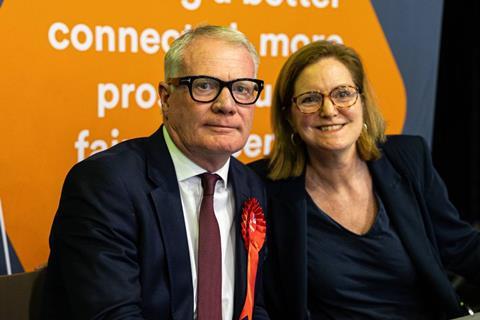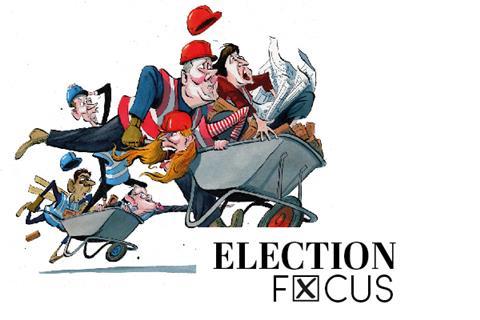Former PwC director also expected to continue working with Greater Manchester mayor on HS2 alternative from Birmingham to north
Labour’s Richard Parker is pledging to build an extra 20,000 homes in the West Midlands by 2031 after winning the region’s mayoral election by a whisker.
Parker, who previously worked on housing finance and local government issues for professional services giant PwC, won 225,590 votes in last week’s poll, just 1,508 more than Conservative incumbent Andy Street.
In his manifesto, Parker pledged to boost housebuilding and strengthen regulation of the private rented sector.

Parker said he will “work with a Labour government, councils and builders” to increase its annual target to 19,000 homes, which would equate to an extra 20,000 in the region by 2031.
He has also pledged to support social landlords to build at least 2,000 “council and social homes” per year by 2028.
On transport infrastructure, Parker has been critical of the government’s decision to scrap the leg of HS2 between Birmingham and Manchester, saying it was a missed opportunity.
“The opportunity to level up our region has been lost in favour of mending potholes in London,” he said, vowing to “explore all options and work with other mayors” to ensure HS2, along with the region’s airports, towns and cities, is “at the heart of a national transport network, and a gateway to the world”.
Parker’s predecessor Street had been working with Greater Manchester mayor Andy Burnham, in consultation with private firms, on potential alternatives to HS2 between London and Manchester.
One source said the defeat of Street, a vocal champion of HS2 and the leg north, did not spell the end of the alternative proposal he and Burnham had been working on. “Richard Parker and Andy Street share similar ambitions for HS2 to the north.”
Elsewhere in the mayoral elections, Sadiq Khan was re-elected in London with a swing of 3.2%, while Burnham was re-elected with a landslide vote.
Conservative incumbent Ben Houchen hung on to win a third term in Tees Valley.
Election focus

As thoughts turn towards the next general election, the UK is facing some serious problems.
Low growth, flatlining productivity, question marks over net zero funding and capability, skills shortages and a worsening housing crisis all amount to a daunting in-tray for the next government.
This year’s general election therefore has very high stakes for the built environment and the economy as a whole.
For this reason, Building has launched its most in-depth election coverage yet, helping the industry to understand the issues in play and helping to amplify construction’s voice so that the government hears it loud and clear.


























No comments yet